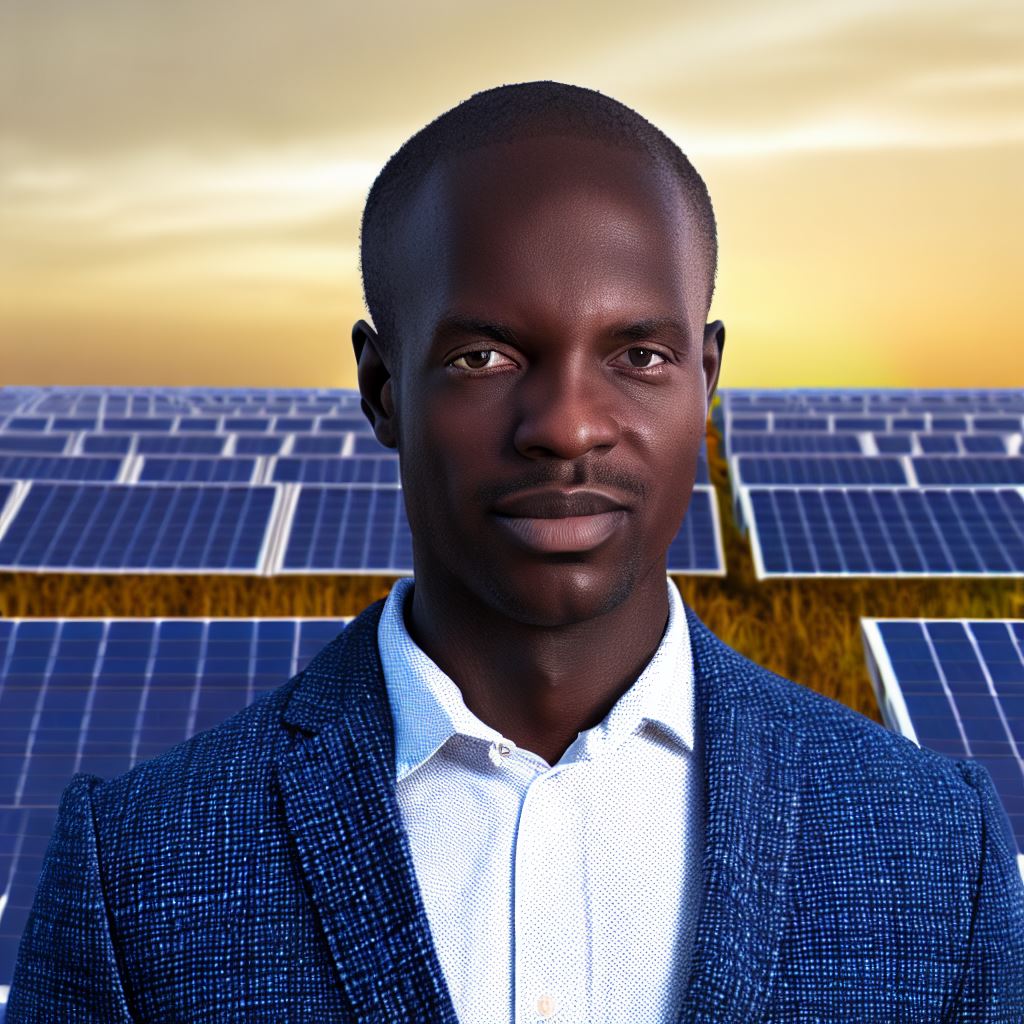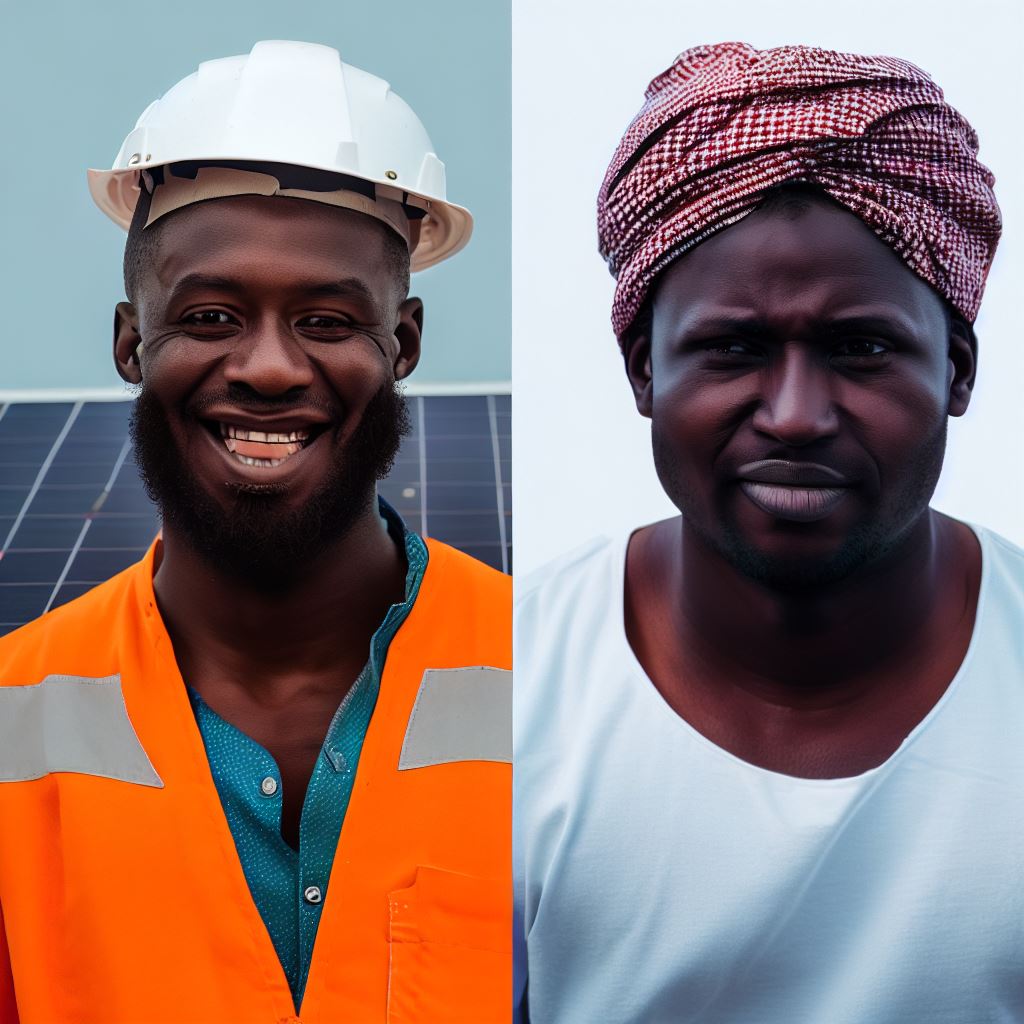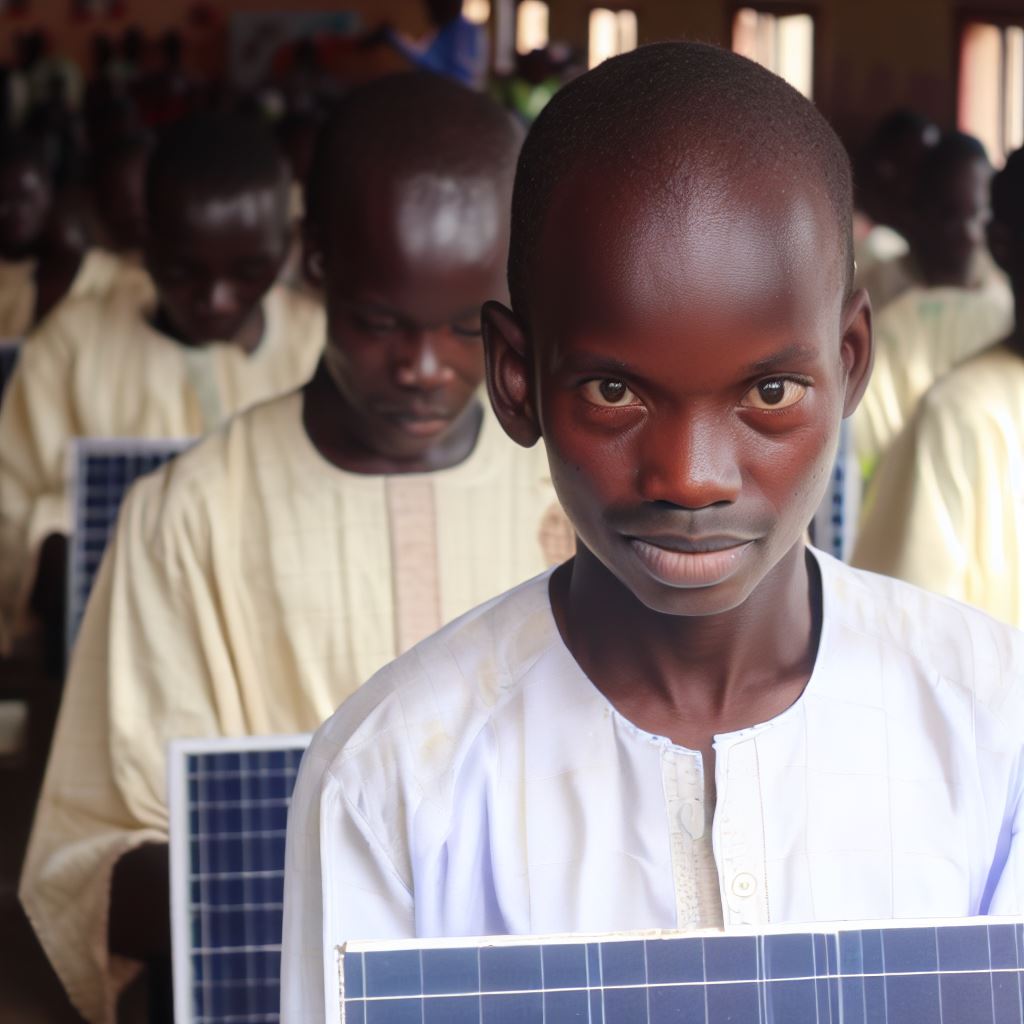Introduction
Legal Requirements for PV Installers in Nigeria
The solar energy industry in Nigeria is rapidly growing, and with it comes the need for clear legal requirements for PV installers.
These legal requirements dictate the standards and guidelines that must be followed when installing photovoltaic systems in the country.
Understanding these legal requirements is crucial for anyone involved in the solar energy industry for several reasons.
Firstly, compliance with these requirements ensures that installations are safe and of a high quality.
By following the guidelines, PV installers can mitigate potential risks and hazards, ensuring that their work meets the necessary safety standards.
Secondly, understanding the legal requirements allows PV installers to navigate the regulatory landscape efficiently.
Compliance with the requirements can help prevent costly legal issues and fines, ensuring that installation projects proceed smoothly.
Furthermore, compliance also fosters trust and credibility in the industry.
By meeting the legal requirements, PV installers can demonstrate their commitment to professionalism and adherence to the highest standards.
This not only enhances their reputation but also strengthens the overall reputation of the solar energy industry in Nigeria.
It is important for PV installers to not only be aware of the basic legal requirements but also to stay updated on any changes or new regulations.
The solar energy industry is evolving rapidly, and staying informed is essential to ensure ongoing compliance and smooth operations.
In the following sections, we will explore in detail the specific legal requirements that PV installers must adhere to in Nigeria.
Understanding and complying with these requirements is essential for the success and growth of the solar energy industry in the country.
Overview of Solar Energy Industry in Nigeria
Nigeria’s solar industry is growing due to:
- Rising awareness of renewables and energy diversification.
- Government target of 30% renewable electricity by 2030.
- Feed-in tariff program attracting investments and fostering entrepreneurship.
Solar energy benefits:
- Cost savings on electricity bills.
- Stable, predictable power amidst rising traditional energy costs.
- Minimal maintenance, reducing operational expenses.
- Versatility for urban and rural areas.
- Scalability to increase energy production.
- Environmental advantages, reducing carbon footprint and conserving water resources.
Qualified PV installers are in demand. Legal requirements include:
- Obtaining necessary certifications and licenses.
- Compliance with NEMSA regulations.
- Passing relevant exams.
- Adhering to safety regulations and local building codes.
In nutshell, Nigeria’s solar industry growth offers numerous benefits.
PV installers must meet legal requirements to ensure safety and quality installations, contributing to industry success.
Read: A Day in the Life: Nigerian Industrial Psychologist
General Legal Framework for PV Installers in Nigeria
In Nigeria, the solar energy industry is subject to a specific legal framework that governs PV installers.
This framework includes various laws, regulations, and policies that are essential for the operation and regulation of PV installations.
Legal Framework Governing the Solar Energy Industry in Nigeria
The legal framework governing the solar energy industry in Nigeria is designed to promote the use of clean and sustainable energy sources, such as solar power.
It aims to regulate PV installers to ensure safety, quality, and compliance with relevant standards and guidelines.
One of the key laws governing the solar energy industry is the Nigerian Electricity Regulatory Commission (NERC) Act.
This Act establishes the NERC as the regulatory authority responsible for overseeing the activities of the electricity sector, including solar power generation and distribution.
Additionally, the Federal Ministry of Power is responsible for formulating policies, regulations, and guidelines for the solar energy industry.
It collaborates with other relevant government agencies, such as the Nigerian Electricity Management Services Agency (NEMSA), to implement and enforce these policies.
Relevant Laws, Regulations, and Policies for PV Installers
PV installers in Nigeria must adhere to legal requirements for safety, quality, and legality, including:
- Obtaining necessary licenses and permits from NERC or relevant authorities.
- Following NEMSA technical standards and guidelines.
- Complying with health and safety regulations.
- Adhering to environmental regulations for minimal impact.
- Protecting consumer rights through fair business practices.
The Nigerian government continually updates regulations and policies to align with technological advancements and international standards.
In short, PV installers ensure safe, quality, and legal operations by complying with a comprehensive legal framework, contributing to Nigeria’s solar energy industry growth.
Read: Corporate Success: Industrial Psychologists in Nigeria
Licensing and Certification Requirements
In Nigeria, the process of obtaining a license or certification as a PV installer involves several qualifications and requirements.
1. Training and Education
- PV installers must complete the necessary training and education programs to acquire the required knowledge and skills.
- They need to undergo specialized courses and workshops that focus on photovoltaic system installation.
2. Practical Experience
- Prior work experience in the field of solar panel installation is often a prerequisite for obtaining a license or certification.
- Installers must demonstrate their expertise through a specified minimum number of hours or completed projects.
3. Licensing Process
- Applicants must submit the required documents, such as completed application forms, educational certificates, and proof of work experience.
- They should fill out the necessary forms and pay the prescribed fees to initiate the licensing process.
4. Written Examination
- PV installers in Nigeria are typically required to pass a written examination to assess their understanding of PV system installation.
- The examination covers topics like electrical safety, component selection, system design, and maintenance.
5. Practical Examination
- In addition to the written examination, PV installers may also be required to undergo a practical examination.
- During this assessment, they have to demonstrate their skills in safely installing, maintaining, and troubleshooting PV systems.
6. Code Compliance
- Installers must have knowledge of the relevant electrical codes and regulations governing PV installations in Nigeria.
- They need to adhere to these codes to ensure safety and compliance with industry standards.
7. Renewal and Continuing Education
- After obtaining a license or certification, PV installers must renew their licenses periodically.
- This typically involves completing continuing education courses to stay updated on industry advancements and changes in regulations.
8. Additional Requirements
- Depending on the state or region, additional requirements, such as background checks, may be necessary.
- These checks are conducted to ensure the integrity and credibility of PV installers.
By fulfilling these licensing and certification requirements, PV installers in Nigeria can demonstrate their competence and commitment to providing safe and reliable solar panel installations.
Read: Job Market Analysis: Industrial Psychologists in Nigeria

Safety Regulations and Standards
Safety regulations and standards are of utmost importance for PV installers in Nigeria.
- Compliance with the Nigerian Electricity Regulatory Commission (NERC) guidelines is mandatory.
- Installers must adhere to the Occupational Safety and Health Administration (OSHA) regulations.
- Electrical installation practices should follow the Nigerian Standard for Electrical Installations (NSEI).
- Use of personal protective equipment (PPE) is crucial to minimize the risk of accidents.
- PV installers should possess proper training and certifications to ensure competence in their work.
Ensuring safe installation practices is vital for the protection of both installers and consumers.
- Proper installation reduces the risk of electrical faults, fires, and other accidents.
- Compliance with safety regulations guarantees the long-term performance and reliability of PV systems.
- It increases consumer confidence in the installation and promotes the growth of the solar industry.
- Safe practices minimize the potential for personal injury, electrical shocks, or fatal accidents.
- Installers who prioritize safety establish a positive reputation and attract more customers.
In fact, PV installers in Nigeria must be aware of and comply with safety regulations and standards.
By adhering to guidelines set by regulatory bodies, employing safe practices, and prioritizing consumer safety,
installers can contribute to the growth and sustainability of the solar industry in Nigeria.
Read: Ethics and Standards for Industrial Psychologists in Nigeria
Environmental Regulations and Compliance
PV installers in Nigeria must:
- Conduct thorough site assessments, considering shading, orientation, and structural integrity.
- Obtain permits and licenses from relevant agencies to ensure safety and environmental compliance.
- Follow NEPA guidelines for proper disposal of solar panels and related materials.
- Explore recycling and repurposing options to minimize waste.
- Conduct environmental impact assessments to identify and mitigate potential risks.
- Develop end-of-life management plans for aging or damaged panels.
- Prioritize energy efficiency in system design by selecting quality components and optimizing performance.
- Avoid installations in protected areas like national parks to preserve ecological integrity.
By adhering to these regulations and requirements, PV installers can support sustainable energy development in Nigeria while minimizing environmental impact.
Staying updated on regulatory changes is essential for continued compliance.
Quality Assurance and Testing
Quality assurance is pivotal in PV installations, ensuring safety and efficiency. Key testing procedures and standards include:
- Visual Inspection: Identifying visible defects, physical damage, loose connections, or improper wiring.
- Infrared Testing: Detecting hotspots as potential defect indicators.
- Performance Testing: Measuring energy output for system efficiency.
- Electrical Testing: Evaluating voltage, current, and resistance.
- Insulation Testing: Ensuring proper electrical component insulation.
- Environmental Testing: Assessing durability under various conditions.
International standards include:
- IEC 61215: Design qualification for crystalline silicon PV modules.
- IEC 61646: Design qualification for thin-film PV modules.
- IEC 61730: Safety qualification for PV modules.
- IEC 62446: Guidelines for grid-connected PV systems.
- NEMSA Electrical Installation Regulations: Requirements for PV systems in Nigeria.
Adhering to these measures ensures correct installation and upholds efficiency and safety standards.
Financial Incentives and Government Support
PV installers in Nigeria enjoy various financial incentives and government support options:
- Capital Subsidies reduce upfront solar installation costs.
- Tax Rebates let installers deduct a portion of their costs from taxes.
- Soft Loans offer low-interest funding for projects.
- Import Duty Waivers make solar equipment more affordable.
- Feed-in Tariff guarantees fixed payments for grid-supplied electricity.
- Net Metering allows selling excess power back to the grid.
- Training programs enhance installer skills and knowledge.
- Certification and licensing ensure compliance with standards.
These incentives benefit both installers and consumers:
- Cost Reduction makes solar installations more affordable.
- Increased Demand due to incentives benefits installers.
- Job Creation results from government support.
- Enhanced Energy Access, particularly in remote areas.
- Environmental Benefits through clean energy adoption.
- Standardized Installations maintain quality standards.
- Consumer Confidence in certified installers.
- Energy Cost Savings from reduced electricity bills.
In review, government support and financial incentives drive solar energy adoption in Nigeria.
Installers benefit from reduced costs and enhanced skills, while consumers enjoy affordable, reliable, and clean energy solutions.
This support fosters a sustainable and renewable energy future.
Conclusion
In general, understanding and complying with legal requirements for PV installers in Nigeria is of utmost importance.
By following these legal requirements, installers can ensure the safety and effectiveness of their PV installations.
It is crucial for PV installers to stay updated with any changes in regulations or policies to meet the evolving standards.
Not only does complying with legal requirements protect the installer’s reputation, but it also contributes to the overall growth and development of the PV industry in Nigeria.
Therefore, it is highly recommended for readers to further explore this topic, seeking additional resources and staying updated with any changes.
By doing so, PV installers can ensure they are operating within the framework of the law while maximizing their potential in the solar energy sector.
Remember, compliance with legal requirements is not just a legal obligation, but a responsibility towards safety, quality, and sustainable growth.
So, let’s strive to be informed, proactive, and compliant with the legal requirements for PV installers in Nigeria!




